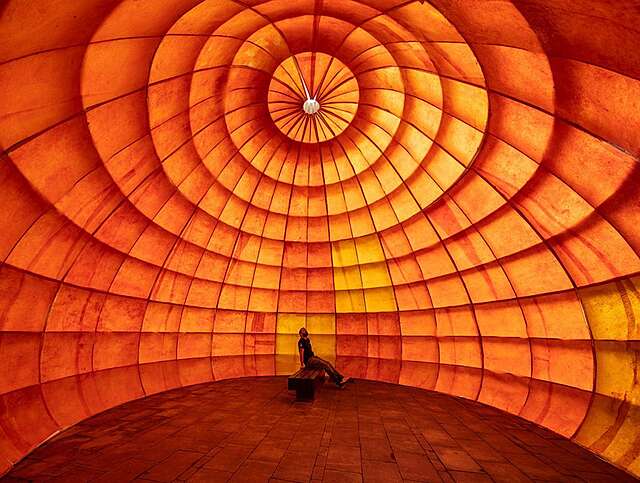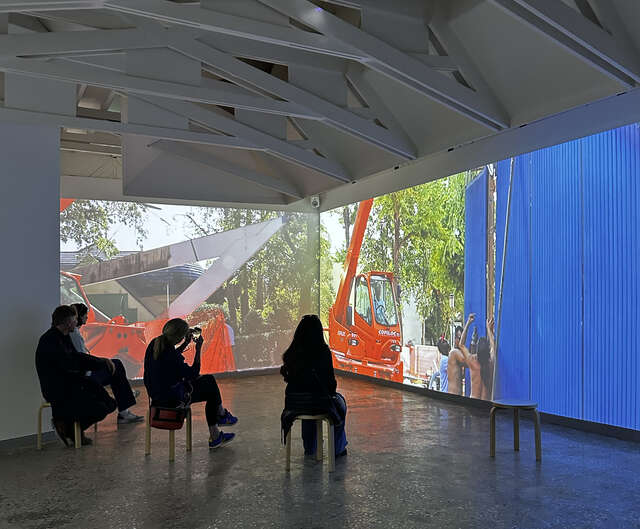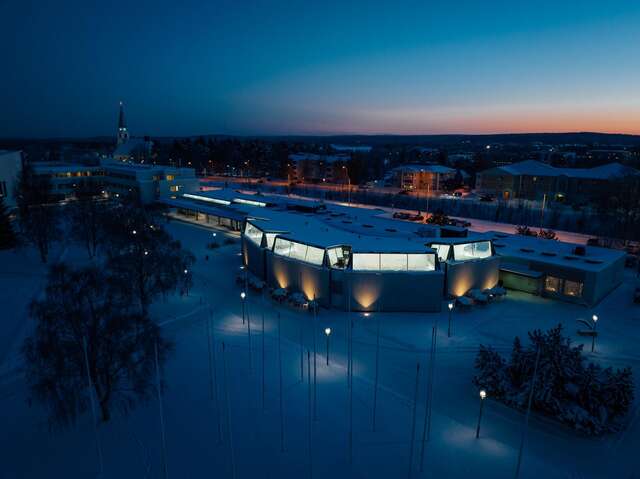Suomi/Koivisto Architects awarded international sustainable design prize
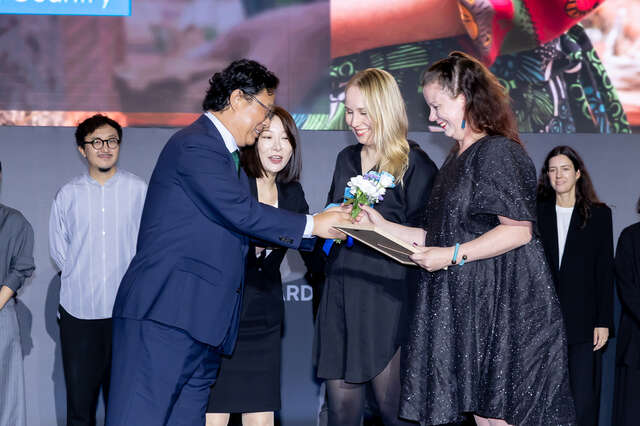
Seoul Design Award
The Alusta Pavilion for multi-species encounters, designed by Elina Koivisto and Maiju Suomi, was awarded the Seoul Design Award Best of the Best on Friday, 24 October, in Seoul, South Korea. Next year, the pavilion will be on display in Japan.
The Alusta Pavilion is a place for encounters between people and other species in an urban environment. Originally, from 2022 to 2024, it was located in Helsinki, in the courtyard of the Architecture & Design Museum, from where it moved to the Aalto University campus in Espoo. In 2024, the Alusta Pavilion was awarded the Finnish Association of Architects' Tunnustuspaanu award for ecological construction.
Since then, Alusta has taken off internationally. This year, its designers, Finnish architects Elina Koivisto and Maiju Suomi, were invited to Carlo Ratti's main exhibition at the Venice Architecture Biennale and to London Design Museum’s More Than Human exhibition, which featured works by fifty artists, architects, and designers.
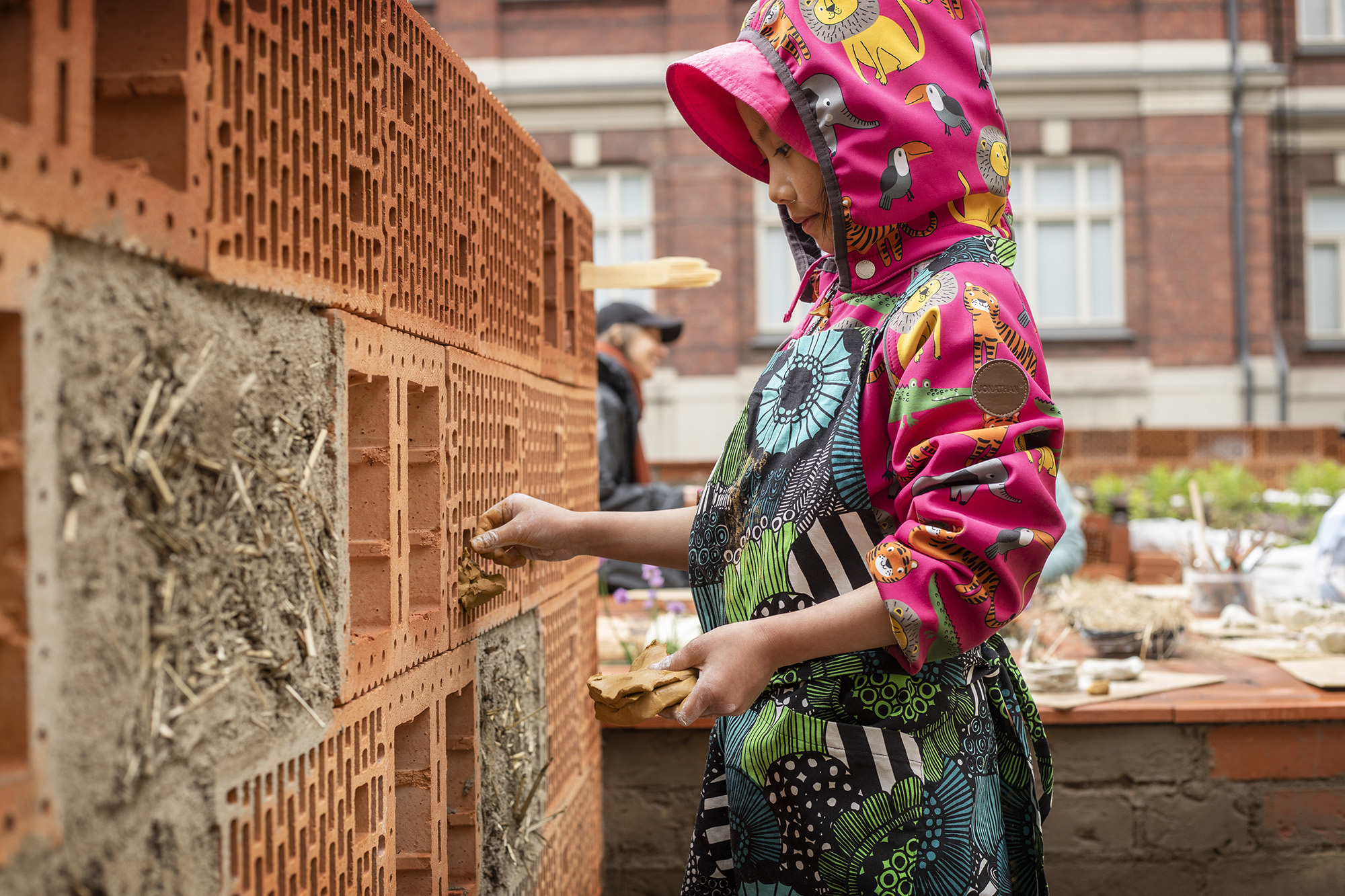
According to its creators, the Alusta Pavilion is a multisensory example of how our own well-being is linked to the well-being of the rest of nature. Through its flowering meadow and porous building materials, Alusta provides shelter and nourishment for pollinating insects and aesthetic experiences and well-being for human visitors. It also demonstrates how biodiversity can be supported in an urban environment.
Read more about Elina Koivisto and Maiju Suomi at Archinfo’s Spotlight series through this link.
The global conquest of Alusta continues in Asia
The recognition received by Suomi/Koivisto in the Seoul Design Awards is the first Best of the Best award to come to Finland. Established in 2019, this international sustainable design award highlights designers who creatively solve everyday challenges and promote a harmonious, sustainable relationship between people, society, and the environment.
In the first edition of the award, Aalto University's School as a Service operating model was a finalist for the award, formerly known as the Human City Design Awards. This year, in addition to the Grand Prize, nine projects out of nearly a thousand submissions received the Best of the Best award.
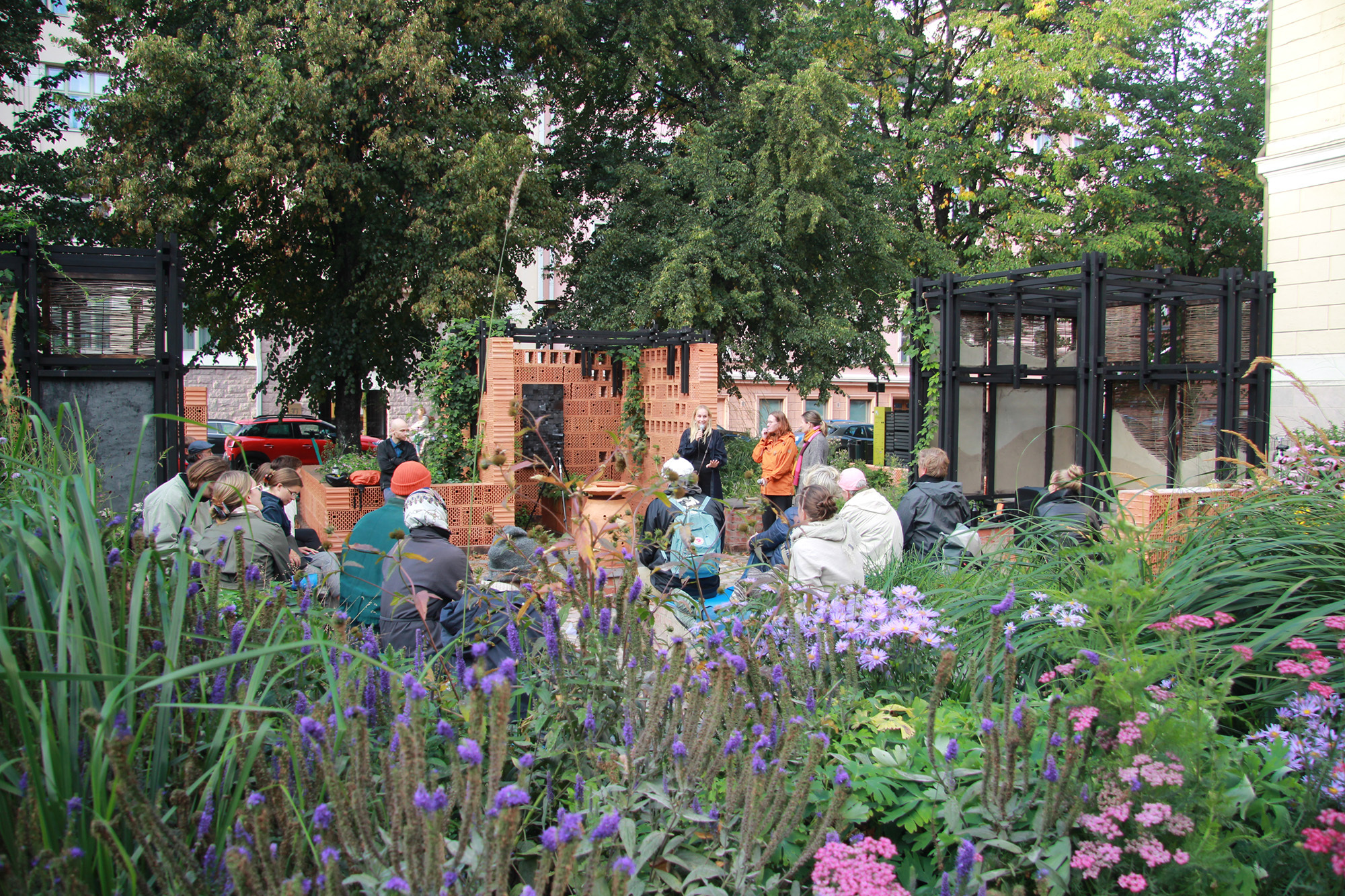
Next year, Alusta Pavilion will be on display in Tokyo, as Suomi/Koivisto is running a project funded by Finland’s Ministry of Education and Culture in collaboration with the Finnish Institute in Japan. The project involves developing ecological construction solutions by adapting the Alusta Pavilion to the Japanese context. According to Jaakko Nousiainen, Director of the Finnish Institute in Japan, Alusta will create new forms of multidisciplinary research collaboration between Finland and Japan and promote environmental discussion and education among citizens of all ages in Finland and Japan.
This autumn, Suomi/Koivisto’s work was also featured in Japan, at a networking and export event organised by Archinfo and its Nordic sister organisations in connection with the World Expo in Osaka. The speakers at the Designing Wellbeing Cities seminar included architects and experts from Japan and the Nordic countries. Maiju Suomi participated in a session on architecture that welcomes everyone. Another Finnish speaker was Heikki Riitahuhta from Studio Puisto, whose topic was public bath culture in the sustainable city. The event, held in the joint Nordic Pavilion of the Expo, was aimed at Japanese architects and experts in construction.

